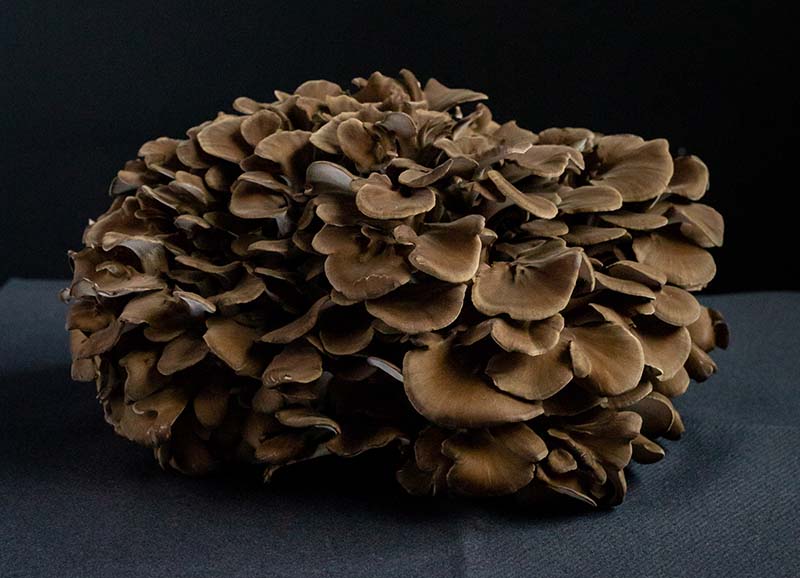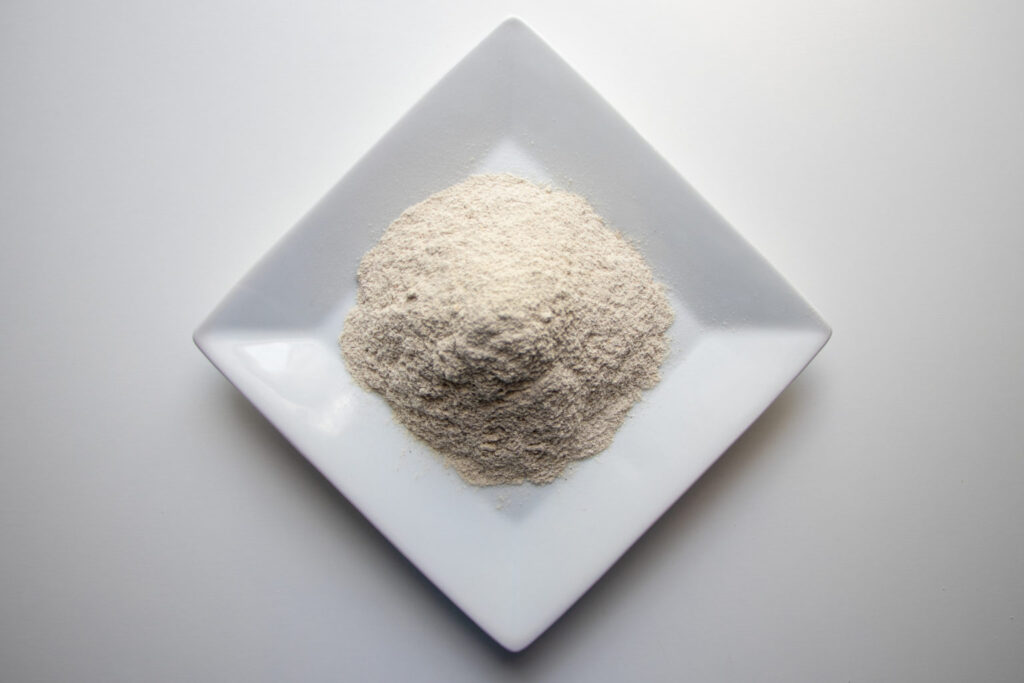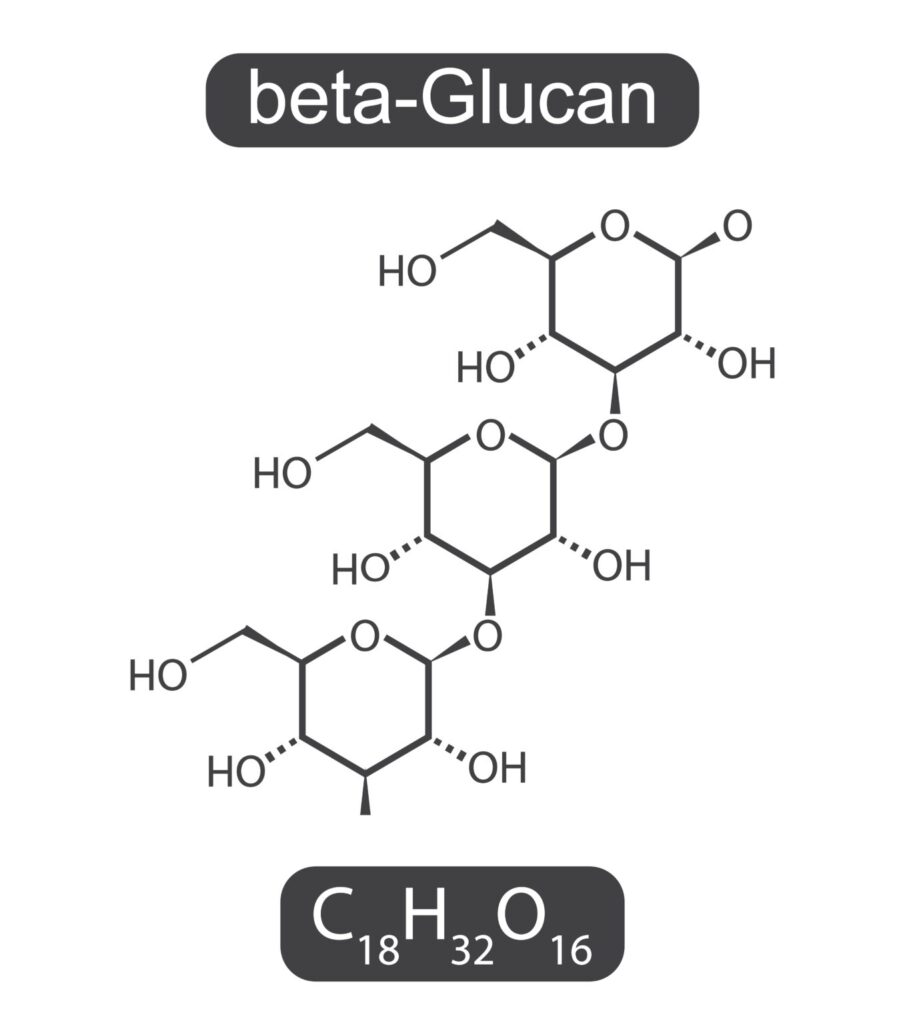Health Benefits

Health Benefits
Mushrooms have been used for centuries in Asia for their nutritional properties and as traditional medicines. Modern research supports the medicinal value of several types of mushrooms, including maitake, and medicinal mushrooms are used in clinical practice in Japan and China to augment certain therapies, including cancer treatments.
Although the consumption of whole mushrooms provides health benefits, there is a growing market for the use of extracts of medicinal mushrooms as nutritional supplements with high therapeutic potential. Depending upon the mushroom species used as the source, the health benefits of mushroom extracts can include:
• Antitumor and anticancer effects
• Immunomodulation, including boosting the immune system
• Reduction of cancer spread (metastasis)
• Antioxidant effects
• Anti-angiogenic effects
• Antimicrobial properties
• Anti-inflammatory properties
• Lower cholesterol and blood glucose levels
The health benefits of medicinal mushrooms are achieved through various bioactive compounds, of which a group of polysaccharides called beta-glucans are of particular value. A substantial body of research indicates that beta-glucans can boost the immune response against cancer cells, reduce tumor growth, and enhance the effects of other cancer treatments.
Maitake is certified by Health Canada as a Natural Health Product
Maitake (Grifola frondosa) is a mushroom belonging to the Polyporaceae family. They are natively grown in Japan, China, and North America, found at the base of oak, maple, and elm trees.
The maitake mushroom can range in size, averaging 3-15 pounds but can grow to be 100 pounds. They also appear in a variety of colors, from pure white, yellow, brown, and black, with black maitake having the highest quality and potency.
Maitake mushrooms are rich in antioxidants, beta-glucans, vitamins B and C, potassium, fiber, minerals, and amino acids.


Beta Glucan
Beta-glucans (ß-glucans) are polysaccharides, which are carbohydrates consisting of long chains of sugars (saccharides). A variety of beta-glucans from medicinal mushrooms have been shown to have immunomodulatory properties; that is, they can modify immune responses. Structure of beta-glucan (ß-glucan) from maitake. The complex structure of this ß-glucan includes branching side chains and ß-1,6 and ß-1,3 linkages between the saccharide units.
Reported effects (bioactivities) of various beta-glucans include:
• Stimulation of macrophages, natural killer cells, T cells, and other white blood cells that are important in fighting cancer and infectious diseases;
• Enhanced production of immune-signaling proteins such as cytokines from white blood cells;
• Inhibition of tumor cells and reduction of tumor cell spread;
• Enhanced sensitivity of cancer cells to chemotherapy, among others
Additionally, clinical trials with beta-glucans from medicinal mushrooms report:
• Increased stimulation of the immune system in patients with different types of cancers;
• Reduction in side effects from chemotherapy;
• Pain reduction;
• Improvement in the quality of life and overall survival of cancer patients
Notably, several fungal beta-glucans have been approved as adjuvant cancer therapies in Japan, Korea, and China, including a drug based on maitake beta-glucan.
Do Not Take If:
You are taking blood sugar-lowering medications: Maitake can increase their effects.
You are taking warfarin: Maitake may interact with warfarin, resulting in an elevated international normalized ratio (INR).
Side Effects:
An increased number of white blood cells may indicate an allergic reaction.
For Healthcare Professionals:
Scientific Name—Grifola frondosa
Dr. Hiroaki Nanba’s Cancer Research
Some of the earliest experimental studies on the therapeutic potential of maitake were conducted in 1985 by Dr. Hiroaki Nanba and colleagues at Kobe Pharmaceutical University.
• Dr. Nanba’s group prepared different fractions (separate portions) from the maitake fruiting body and found that some fractions exerted anticancer effects, enhanced the activation of macrophages, and also enhanced the production of cytokines 29-33.
• Administration of these active maitake fractions significantly reduced the development of cancer in mice exposed to a cancer-causing agent; in the control group that did not receive the maitake fractions, 93% of the mice developed cancer, whereas the number was much lower (31%) in the group that also received maitake 30, indicating that maitake helped to protect against the effects of the cancer-causing agent.
• Dr. Nanba and colleagues also showed that active maitake fractions reduced the size of tumors in mice. 29. These active fractions contained large beta-glucans with a high degree of branching (Figure 3), features that are believed to enhance the ability of beta-glucans to stimulate immune cells and induce cytokine production.
In laboratory models, active maitake extract:
• reduced the development of breast cancer
• reduced the spread of breast cancer cells
• reduced the size of tumors
• increased the destruction of cancer cells
Benefits of Maitake Immunotherapy in Cancer and Other Diseases
Multiple research studies report the immunotherapeutic benefits of maitake extracts for various diseases, with many of these studies suggesting therapeutic benefits against several types of cancer, such as:
• Bladder cancer
• Colon cancer
• Breast cancer
• Gastric cancer
• Kidney cancer
• Prostate cancer
• Systemic antitumor effects and inhibition of metastases
Clinical trials conducted using Maitake Extract
Memorial Sloan-Kettering Cancer Center in New York conducted a phase I/II trial that assessed the administration of Maitake Extract in breast cancer patients. The study determined that the Maitake Extracts were safe, well-tolerated, and showed no toxicity.
References & Resources
- National Cancer Institute, U. Medicinal mushrooms (PDQ)–health professional version., <https://www.cancer.gov/about-cancer/treatment/cam/hp/mushrooms-pdq> (2022).
- Wasser, S. P. Medicinal mushroom science: Current perspectives, advances, evidences, and challenges. Biomed J 37, 345-356, doi:10.4103/2319-4170.138318 (2014).
- Garwood, G. Mushroom market booming on alternative protein, other trends. (2021). <https://foodinstitute.com/focus/mushroom-market-booming-on-alternative-protein-other-trends/>.
- Kumar, K. et al. Edible mushrooms: a comprehensive review on bioactive compounds with health benefits and processing aspects. Foods 10, doi:10.3390/foods10122996 (2021).
- Meuninck, J. Basic Illustrated Edible and Medicinal Mushrooms. Falcon Guides edn, 13-14 (Rowman & Littlefield, 2015).
- Yue, G. G., Fung, K. P., Tse, G. M., Leung, P. C. & Lau, C. B. Comparative studies of various Ganoderma species and their different parts with regard to their antitumor and immunomodulating activities in vitro. J Altern Complement Med 12, 777-789, doi:10.1089/acm.2006.12.777 (2006).
- Zhao, S. et al. Immunomodulatory effects of edible and medicinal mushrooms and their bioactive immunoregulatory products. J Fungi (Basel) 6, doi:10.3390/jof6040269 (2020).
- Venturella, G., Ferraro, V., Cirlincione, F. & Gargano, M. L. Medicinal mushrooms: bioactive compounds, use, and clinical trials. Int J Mol Sci 22, doi:10.3390/ijms22020634 (2021).
- Health Canada. Natural Health Product: Maitake — Grifola frondosa, <http://webprod.hc-sc.gc.ca/nhpid-bdipsn/atReq.do?atid=maitake&lang=eng> (2018).
- Murphy, E. J., Rezoagli, E., Major, I., Rowan, N. J. & Laffey, J. G. β-glucan metabolic and immunomodulatory properties and potential for clinical application. J Fungi (Basel) 6, doi:10.3390/jof6040356 (2020).
- Xiao, Z., Zhou, W. & Zhang, Y. Fungal polysaccharides. Adv Pharmacol 87, 277-299, doi:10.1016/bs.apha.2019.08.003 (2020).
- Spacek, J., Vocka, M., Zavadova, E., Konopasek, B. & Petruzelka, L. Immunomodulation with β-glucan from Pleurotus ostreatus in patients with endocrine-dependent breast cancer. Immunotherapy 14, 31-40, doi:10.2217/imt-2021-0069 (2022).
- Rutckeviski, R. et al. Agaricus bisporus β-(1 → 6)-d-glucan induces M1 phenotype on macrophages and increases sensitivity to doxorubicin of triple negative breast cancer cells. Carbohydr Polym 278, 118917, doi:10.1016/j.carbpol.2021.118917 (2022).
- Paterson, R. R. & Lima, N. Biomedical effects of mushrooms with emphasis on pure compounds. Biomed J 37, 357-368, doi:10.4103/2319-4170.143502 (2014).
- He, Y., Zhang, L. & Wang, H. The biological activities of the antitumor drug Grifola frondosa polysaccharide. Prog Mol Biol Transl Sci 163, 221-261, doi:10.1016/bs.pmbts.2019.02.010 (2019).
- Masuda, Y. et al. Oral administration of soluble β-glucans extracted from Grifola frondosa induces systemic antitumor immune response and decreases immunosuppression in tumor-bearing mice. Int J Cancer 133, 108-119, doi:10.1002/ijc.27999 (2013).
- Masuda, Y., Murata, Y., Hayashi, M. & Nanba, H. Inhibitory effect of MD-Fraction on tumor metastasis: involvement of NK cell activation and suppression of intercellular adhesion molecule (ICAM)-1 expression in lung vascular endothelial cells. Biol Pharm Bull 31, 1104-1108, doi:10.1248/bpb.31.1104 (2008).
- Masuda, Y., Nakayama, Y., Tanaka, A., Naito, K. & Konishi, M. Antitumor activity of orally administered maitake α-glucan by stimulating antitumor immune response in murine tumor. PLoS One 12, e0173621, doi:10.1371/journal.pone.0173621 (2017).
- Masuda, Y., Nawa, D., Nakayama, Y., Konishi, M. & Nanba, H. Soluble β-glucan from Grifola frondosa induces tumor regression in synergy with TLR9 agonist via dendritic cell-mediated immunity. J Leukoc Biol 98, 1015-1025, doi:10.1189/jlb.1A0814-415RR (2015).
- Pyo, P., Louie, B., Rajamahanty, S., Choudhury, M. & Konno, S. Possible immunotherapeutic potentiation with D-fraction in prostate cancer cells. J Hematol Oncol 1, 25, doi:10.1186/1756-8722-1-25 (2008).
- Rajamahanty, S., Louie, B., O’Neill, C., Choudhury, M. & Konno, S. Possible disease remission in patient with invasive bladder cancer with D-fraction regimen. Int J Gen Med 2, 15-17, doi:10.2147/ijgm.s4948 (2009).
- Shomori, K., Yamamoto, M., Arifuku, I., Teramachi, K. & Ito, H. Antitumor effects of a water-soluble extract from Maitake (Grifola frondosa) on human gastric cancer cell lines. Oncol Rep 22, 615-620, doi:10.3892/or_00000480 (2009).
- Louie, B., Rajamahanty, S., Won, J., Choudhury, M. & Konno, S. Synergistic potentiation of interferon activity with maitake mushroom d-fraction on bladder cancer cells. BJU Int 105, 1011-1015, doi:10.1111/j.1464-410X.2009.08870.x (2010).
- Degen, M., Alexander, B., Choudhury, M., Eshghi, M. & Konno, S. Alternative therapeutic approach to renal-cell carcinoma: induction of apoptosis with combination of vitamin K3 and D-fraction. J Endourol 27, 1499-1503, doi:10.1089/end.2013.0207 (2013).
- Gu, C. Q., Li, J. & Chao, F. H. Inhibition of hepatitis B virus by D-fraction from Grifola frondosa: synergistic effect of combination with interferon-alpha in HepG2 2.2.15. Antiviral Res 72, 162-165, doi:10.1016/j.antiviral.2006.05.011 (2006).
- Guo, W. L. et al. Hypoglycemic and hypolipidemic activities of Grifola frondosa polysaccharides and their relationships with the modulation of intestinal microflora in diabetic mice induced by high-fat diet and streptozotocin. Int J Biol Macromol 153, 1231-1240, doi:10.1016/j.ijbiomac.2019.10.253 (2020).
- Lei, H. et al. MT-α-glucan from the fruit body of the maitake medicinal mushroom Grifola frondosa (higher Basidiomyetes) shows protective effects for hypoglycemic pancreatic β-cells. Int J Med Mushrooms 15, 373-381, doi:10.1615/intjmedmushr.v15.i4.50 (2013).
- Wesa, K. M. et al. Maitake mushroom extract in myelodysplastic syndromes (MDS): a phase II study. Cancer Immunol Immunother 64, 237-247, doi:10.1007/s00262-014-1628-6 (2015).
- Hishida, I., Nanba, H. & Kuroda, H. Antitumor activity exhibited by orally administered extract from fruit body of Grifola frondosa (maitake). Chem Pharm Bull (Tokyo) 36, 1819-1827, doi:10.1248/cpb.36.1819 (1988).
- Nanba, H. & Kubo, K. Effect of Maitake D-fraction on cancer prevention. Ann N Y Acad Sci 833, 204-207, doi:10.1111/j.1749-6632.1997.tb48611.x (1997).
- Masuda, Y., Togo, T., Mizuno, S., Konishi, M. & Nanba, H. Soluble β-glucan from Grifola frondosa induces proliferation and Dectin-1/Syk signaling in resident macrophages via the GM-CSF autocrine pathway. J Leukoc Biol 91, 547-556, doi:10.1189/jlb.0711386 (2012).
- Mayell, M. Maitake extracts and their therapeutic potential. Altern Med Rev 6, 48-60 (2001).
- Nanba, H. Secret of Maitake. (Nutrient Library Co., Ltd.).
- Kodama, N., Komuta, K. & Nanba, H. Effect of Maitake (Grifola frondosa) D-Fraction on the activation of NK cells in cancer patients. J Med Food 6, 371-377, doi:10.1089/109662003772519949 (2003).
- Kodama, N., Komuta, K., Sakai, N. & Nanba, H. Effects of D-Fraction, a polysaccharide from Grifola frondosa on tumor growth involve activation of NK cells. Biol Pharm Bull 25, 1647-1650, doi:10.1248/bpb.25.1647 (2002).
- Roldan-Deamicis, A., Alonso, E., Brie, B., Braico, D. A. & Balogh, G. A. Maitake Pro4X has anti-cancer activity and prevents oncogenesis in BALBc mice. Cancer Med 5, 2427-2441, doi:10.1002/cam4.744 (2016).
- Alonso, E. N. et al. Antitumoral effects of D-fraction from Grifola frondosa (Maitake) mushroom in breast cancer. Nutr Cancer 69, 29-43, doi:10.1080/01635581.2017.1247891 (2017).
- Soares, R. et al. Maitake (D fraction) mushroom extract induces apoptosis in breast cancer cells by BAK-1 gene activation. J Med Food 14, 563-572, doi:10.1089/jmf.2010.0095 (2011).
- Alonso, E. N. et al. Antitumoral and antimetastatic activity of Maitake D-Fraction in triple-negative breast cancer cells. Oncotarget 9, 23396-23412, doi:10.18632/oncotarget.25174 (2018).
- Zhang, Y. et al. Grifola frondosa polysaccharides induce breast cancer cell apoptosis via the mitochondrial-dependent apoptotic pathway. Int J Mol Med 40, 1089-1095, doi:10.3892/ijmm.2017.3081 (2017).
- Alonso, E. N., Orozco, M., Eloy Nieto, A. & Balogh, G. A. Genes related to suppression of malignant phenotype induced by Maitake D-fraction in breast cancer cells. J Med Food 16, 602-617, doi:10.1089/jmf.2012.0222 (2013).
- Deng, G. et al. A phase I/II trial of a polysaccharide extract from Grifola frondosa (Maitake mushroom) in breast cancer patients: immunological effects. J Cancer Res Clin Oncol 135, 1215-1221, doi:10.1007/s00432-009-0562-z (2009).
- ABVC Biopharma. ABV-1703 A natural treatment for pancreatic cancer., <https://abvcpharma.com/?page_id=16972> (2022).
